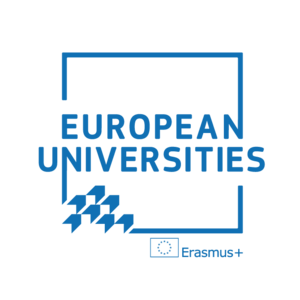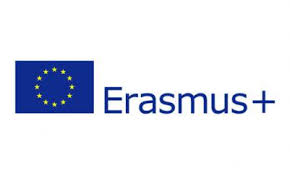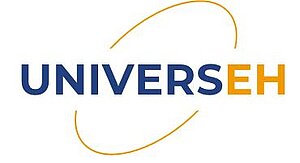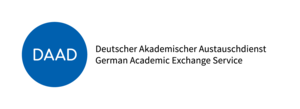Courses
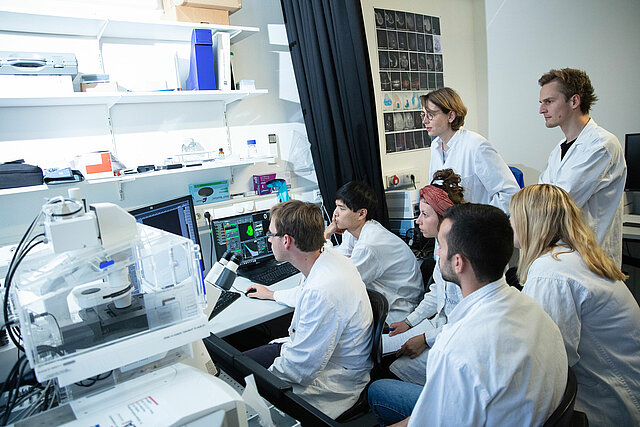
Courses are planned, coordinated and implemented by the partner universities of the Alliance. They take place on the campuses of the institutions in Toulouse, Luxembourg, Düsseldorf, Kraków, Lulea and Kiruna. You can attend the courses in person, distant or blended. To access a course, you should send an email to the responsible coordinator mentioned in the course description.
The courses are typically delivered in English as well as in other languages such as French, German, Polish and Swedish.
As an UNIVERSEH student, you will have the opportunity to combine courses across Universities and access foreign language classes in a multilingual environment.
* Recognition of ECTS credits as part of your study programme depends on the policies and procedures of each UNIVERSEH member university. For more information about the policy on credit recognition, please contact the UNIVERSEH Team at your home university.
Do you have questions? Send us an email here!
Join our academic journey now!
Offered by Heinrich Heine University Duesseldorf and University Toulouse - Jean Jaurès
Lecturer:
- Rolf Kailuweit
- Florent Poupart
Duration:
- 9. October 2024 - 15. January 2025
Teaching modalities:
- Online, synchronus
Requirements:
- Open to all interested Master students (English B1 and French B1 are required to follow the course)
At the fascinating intersection of cultural studies and social psychology aspects of the preoccupation with exocultures and UFOtherness (space-based figures of radical difference in the sense of Lewis & Kahn 2010) will be examined. The course will dive deep into the narratives that bridge the real and the imagined. Key topics include:
• Analysis of the narrative interplay between factual reporting and fictional storytelling in human-alien encounters.
• Exploration of the line between engaging science fiction and controversial conspiracy theories that shape public perceptions of space.
• Comparative study of how various space programs, both public and private, envision interactions with extraterrestrial cultures, referred to as exocultures.
We aim to uncover the role these narratives play within societal discourse and examine the psychological motivations behind belief systems such as conspiracy theories relating to Earth and outer space, such as Flat Earth theory or Raelian beliefs. The course emphasizes practical engagement through project work. Students will have opportunities to conduct field research, participate in interviews, and produce content in diverse formats such as podcasts, films, and theater productions. This program is particularly focused on engaging students from Romance, German, and English-speaking countries, fostering a rich, multicultural dialogue on these pressing topics.
Mobility for HHU students to Toulouse in the second week of December 2024.
This course grants you 3 ECTS.*
Registration and further questions:
Send an email to universeh(at)univ-tlse2.fr - HHU students register directly via HIS LSF.
Offered by Heinrich Heine Univsersity Duesseldorf and University of Luxembourg
Teachers:
- Marten Düring
- Tobias Winnerling
- Stefan Reiners-Selbach
Duration:
- 11. October 2024 - 13. December 2024
Teaching modalities:
- online, synchronus
Requirements:
- Students of an advanced semester (Bachelor's degree) in historical science, philologies, digital humanities, media studies and (trans-)cultural studies
- English B1, German B1
The UNIVERSEH course "Mankind on the Moon. Mining 400 years of Space Exploration" explores the cultural history of space travel and more generally the moon as a cultural reference point in Early Modern, Modern and Contemporary History. Students will explore this topic based on digitized Early Modern Encyclopedias as well as Modern and Contemporary newspaper collections. Alongside lectures on the topic, student-led teams will design small-scale research projects and employ fundamental techniques for the semantic enrichment and data-driven exploration of their sources. In addition, students will explore novel techniques for content presentation in virtual worlds in collaboration with students of the BA Animation Studies at the University of Luxembourg. The proposed seminar pursues a decidedly interdisciplinary approach, fostering collaboration across various fields to enable students to employ digital methods for the study and critical analysis of the multifaceted discourses of space exploration.
The seminar is structured into three main blocks, beginning with an introductory phase in Düsseldorf, where students receive theoretical grounding and hands-on training in using early modern encyclopedias and digitized newspapers as historical sources. This phase emphasizes the formation of interdisciplinary teams, leveraging complementary language skills to facilitate diverse research perspectives. The second block consists of hybrid meetings featuring lectures on premodern voyages to the moon, space travel in the modern era, and digital humanities research methods. These sessions are complemented by practical training in digital tools such as Voyant Tools and the Impresso web app, enhancing students' skills in text analysis and digital research methodologies. In the concluding block held in Luxembourg, students will finalize and present their projects in a virtual world based on the Unreal game engine, incorporating insights from lectures, digital humanities tools, and interdisciplinary collaboration. The seminar aims to equip students with a critical understanding of the cultural history of the moon and space travel, bolstered by project management skills including science communication, writing, and text analysis.
Overall, "Mankind on the Moon. Mining 400 years of Space Exploration" not only offers a critical introduction to cultural and digital history but also contributes to the establishment of a continuous class format. This innovative seminar framework encourages students to continually apply a critical lens to their (inter-)disciplinary training, promoting a holistic understanding of the cultural significance of the moon and space travel throughout history
Mobility to Dusseldorf (October 2024) and to Luxembourg (December 2024).
This course grants you 3 ECTS.*
Registration and further questions:
Send an email to universeh(at)hhu.de - HHU students register directly via HIS LSF.
Offered by Heinrich Heine University Dusseldorf and University Toulouse Jean Jaurès.
Teachers:
- Claire Cazajous-Auge
- Jens Temmen
Duration:
- 14. October 2024 - 16. December 2024
Teaching modalities:
- online, synchronus
Requirements:
- Master student
- English B1.2
The seminar "Colonialism, Imperialism, Fascism - The Legacies and Futures of Modern Space Exploration" is part of the regular course "Critical Outer Space Studies", which is dedicated to the critical and particularly humanities-based examination of space exploration. The aim of the course in the winter semester 2024/2025 is the critical transfer of knowledge about the historical contexts and contemporary continuities of colonial, imperialist and fascist discourses in the context of modern space exploration.
In addition to a structured introduction and critical discussion of colonial, imperial and fascist discourses of expansion and conquest, and their influence on modern space exploration, the course offers students a unique combination of research-based teaching, science communication and collaboration with practice-oriented partners. In addition to acquiring in-depth background knowledge on the above-mentioned topics, the focus of the course is on collaboration with the practice partner involved in the teaching project, Lewis Bush.
Lewis Bush is a British photographer, author, artist and media scholar with a wealth of experience in exhibition work and curation. In addition to his direct involvement in the seminar, his work around his photo book Depravity's Rainbow will take center stage. The photo book is a photographic journey through the early and contradictory history of modern space travel in the fascist German Reich (V2 program) and in its technological reincarnation, NASA's Apollo program. The volume is centering around the life story of Wernher von Braun, who famously embodies the link between both places and both space programs, and connects this life story with archive footage of the US space program, but also with contemporary photographs (taken by Lewis Bush) of the places in Germany where rocket technology took its first decisive steps during the Second World War. The photographs of these partly forgotten places make it clear that, although vaguely known in general, the fascist roots of modern space research - especially in the course of its current revival by the private space industry - are widely underestimated and often invisible. Wernher von Braun himself embodies in particular that space exploration, which is often seen as the spearhead of human civilizational and technological achievement, is deeply rooted in militaristic and expansionist ambitions.
The students participating in the seminar will be directly involved in the conception of a planned photo exhibition based on the photo book Depravity's Rainbow in collaboration with our external partner Lewis Bush, which will take place at the Haus der Universität in Düsseldorf in April 2025 as part of the Night of Museums (Nacht der Museen). The seminar thus offers students a unique insight into various exhibition techniques, practical experience in the creation of accompanying texts and materials for public events, as well as the opportunity to prepare and present the teaching and learning content of the seminar to a broad public.
Mobility to Heinrich Heine University Dusseldorf in November 2024.
This course grants you 3 ECTS.*
Registration and further questions:
Send an email to universeh(at)univ-tlse2.fr - HHU students register directly via HIS LSF.
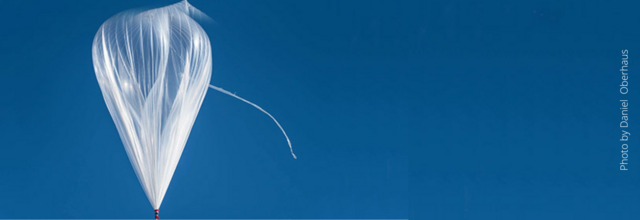
Offered by Luleå University of Technology and University of Toulouse
Lecturers:
- Victoria Barabash
- Hassan Sabbah
- Rene Laufer
Duration:
-
September 2024 - March 2025
Teaching modalities:
- On campus + online asynchronous and online synchronous via Zoom
Requirements:
- Students of an advanced semester (minimum 180 ECTS)
- Scientific and engineering profile
- English level B2
- Willingness to travel to Toulouse during the finale stages of balloon preperation and launch ( March 2025)
This is a project-based course in which students run a regular high-altitude balloon program going through an entire cycle of a space mission. They start by analyzing previous stratospheric balloon missions developed by students. Then in small specialized teams they tackle the various aspects of a space mission: mechanical, thermal, electric architecture; attitude control and navigation (passive), power generation and management, on-board data handling, data telemetry, payload operation and data acquisition, as well as project management. After having chosen one or several science objectives, the students design, build and test (including vacuum and cryogenics) their payload to study the atmosphere or to test a new technology in space. By the end of the first semester, the balloon payload is then launched from Aire-sur-l'Adour in collaboration with the balloon division of CNES (and/or in Kiruna with SNSA).
The main goal of this course is to create an environment in which students can plan and perform a balloon project mission with a scientific payload and critically select and evaluate relevant scientific and technical information within the subject. After completing the course, the students will be able to define primary and secondary objectives for their mission by writing detailed specifications and an efficient working flow package. Students will be also able to analyze and propose future improvements and developments and identify further knowledge needs and take responsibility for self- knowledge progress. Students will also have experience of writing proposals to the French Space Agency (CNES), and/or Swedish Space Agency SNSA.
This course grants you 3 ECTS.*
Registration and further questions:
Send your CV and a letter of motivation to universeh.contact(at)univ-tlse3.fr
An interview may be requested if deemed necessary.
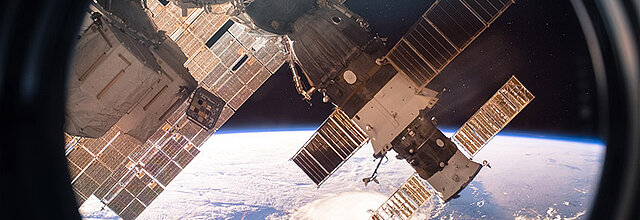
Offered by the University of Luxembourg and INP Toulouse
Lecturers:
- Mahulena Hofmann
- Marie-Laure Boucheret
Duration:
- 25. September 2024 - 16. December 2024
Teaching modalities:
- Online synchronous and asynchronous
Requirements:
- You have to postulate for acceptance.
Nowadays, with the emergence of new space technology, to stay competitive in the space industry, students need to develop an expertise and knowledge in the fields of business and law. This interdisciplinary course will combine technical with law and business aspects of satellite communication systems. Students will submerge themselves into an interdisciplinary work environment and collaborate with other students from either a law or technical background. They will work together to solve problems in teams, which is also an asset from the societal point of view.
For the technically educated students, the courses are eye-opening in presenting the regulatory and business aspects of space activities. For the law students, the exchange with the technically trained students is enriching as they will cooperate with technical experts in the practice and must at least understand the problems which they are expected to solve. For both groups, the business aspect of satellite communications systems will be new and enlarge their competences. The interdisciplinarity of the course is a simulation of situations in a real employment world.
Our goal is to build the bridges between the different fields to reach a common goal and break the silos of traditional work environments.
This course grants you 3 ECTS.*
Registration and further questions:
Send an email to universeh(at)uni.lu
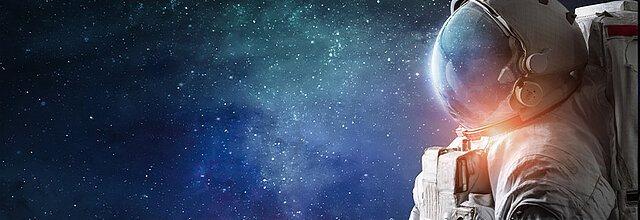
Offered by University of Toulouse and Luleå University of Technology
Lecturer:
- Guillaume Loizelet
- Hamam Mokayed
Duration:
- 02. September 2024 - 16. December 2024
Teaching modalities:
- Hybrid
Requirements:
- Open to all interested students, as long as you are not afraid of mathematical considerations.
- English level B2
This is a project-base course in which students put themselves in the position of ancient astronomers and try to develop their own mathematical models in order to predict the position of one of the five planets that can be observed with the naked eye.
The main goal of the course is for students to experiment the scientific method: confronting tough questions, making small but incremental progress and taking advantage of feedback.
The historical field will be the students' playground. The first courses will explain some of the ancients findings on mathematical astronomy such as the neo-babylonians’ zig-zag functions and Ptolemy’s geometrical models. Then students will choose one planet, one location, and one period of time and will produce their own models and confront them to the real motions of the planet using the Stellarium software.
The range of the historical discussion will go from the middle of the third millennium BP to Einstein’s breakthrough in the early twentieth century: the questions of the ancient astronomers may be seen as natural ones, their answers may be seen as cultural ones, but what is really at stake in this course is about the search for understanding what might not be understood and the long term process of mankind trying to figure it out.
This course grants you 3 ECTS.*
Registration and further questions:
Send your CV and a letter of motivation to universeh.contact(at)univ-tlse3.fr
An interview may be requested if deemed necessary.

Offered by AGH University of Science and Technology, Heinrich Heine University Duesseldorf, Luleå University of Technology and University of Toulouse.
Lecturers:
- Mateusz Danioł
- Florent Destruhaut
- Safouane Hamdi
- Josef Kozak
- Agneta Larsson
- Jessica Ljungberg
- Anne Pavy-Le Traon
- Laure Boyer
Duration:
- 01.October 2024 - 20. February 2025
Teaching modalities:
- Online
Requirements:
- Students of an advanced semester (Bachelor's third year minimum)
- Scientific and/or medical profile with knowledge in e. g. computer science, electronics or material engineering, physics and instrumentation or participating in an business-oriented professional project
- English level B2
It’s hard to imagine long-lasting manned space missions without personalized healthcare provided onboard, and it is hard to imagine modern space healthcare without engineering and technology. In this course students will get an overview of current trends and challenges in medical technology for space. The course focuses on the technologies which are currently in use and on technologies which might make long-term space-flights possible in the near future. All the aspects are presented both in a general and a specific manner through several practical scenarios.
Registration and further questions:
Send an email to krzysztof.grabowski(at)agh.edu.pl
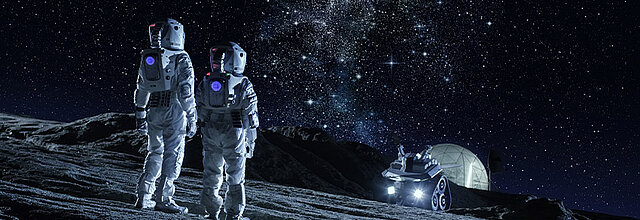
Offered by University of Luxembourg, TSB Toulouse and ISAE-Supaero Toulouse
Lecturers:
- Eric Tschirhart
- Christophe Benaroya
- Emmanuel Zenou
Duration:
- October 2024 to April 2025
Teaching modalities:
- Blended
Requirements:
- Demonstrate a documented interest in the field
- English level B2
In a fast-growing space environment, there is a crucial need to cross-combine skills and expertise to speed up space project development, be it in terms of technical/technological, business or legal acumen. Time has come to interact and work in a collaborative and comprehensive way and from the outset between all key stakeholders.
This course aims at providing to the participants, whatever their educational or cultural background, not only a "common language" but also an efficient working culture combining technical, legal and business dimensions, enabling them to work more efficiently on the design and development of space-related projects, with a shared mindset.
A key feature of the course is the blend of students of different backgrounds, combined with eye-opening course material; with this configuration, interdisciplinarity is total. The subjects treated will focus on giving the students the opportunity to engage in both the entrepreneurial challenges associated with innovation and start-up marketing; as well as the legal and business issues associated with space economy and intellectual property.
This course grants you 3 ECTS.*
Registration and further questions:
Send an email to universeh(at)uni.lu
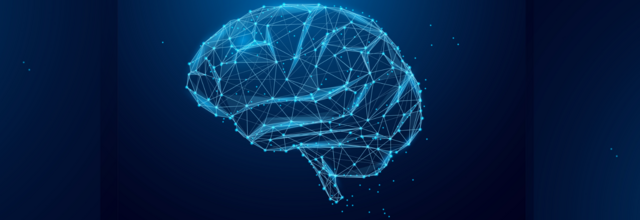
Offered by AGH University of Science and Technology and Luleå University of Technology.
Teachers:
- Maciej Wielgosz
- Marcus Liwicki
- Hamam Mokayed
- Andrzej Skoczeń
Duration:
- October 2024 - February 2025
Teaching modalities:
- on campus
- online
Requirements:
The course is open to engineering-level students from fields of study: Computer Science, Electronics, Telecommunications, Physics.
- Experience in programming languages (python, C, Java).
- Introductory skills in embedded systems (microcontrollers)
- Willing to work with hardware
- Interest in neural networks and machine learning.
The course provides a wide insight into neural network (NN) algorithms and their hardware implementation. The development of NN applications is typically carried out using GPUs and requires a long calculation time. The course gives participants the ability to accelerate and shorten inferring latency using dedicated hardware with limited resources. Although this idea can be adopted in many different applications from many disciplines, the course demonstrates practical examples from space-related research projects. The main goal is to motivate, illustrate, and experience the impact of Machine Language (ML) and Artificial Intelligence (AI) on the space sector.
Besides the emphasis on creating practical design on the available hardware platforms, the course presents a survey of commercially available (and recently introduced by leading manufacturers) systems for hardware implementation of neural algorithms. A survey of dedicated processors with neural architectures currently being developed is also covered.
Another fascinating subject in the course concerns emerging technologies dedicated to future hardware neuromorphic systems currently in the R&D stage.
The huge innovation potential of ML is strongly emphasised during the course. Practical examples of innovative projects are presented to illustrate the impact of ML and AI in business activity.
This course grants you 3 ECTS.*
Registration and further questions:
Send an email to skoczen(at)fis.agh.edu.pl or Hamam.mokayed(at)ltu.se


